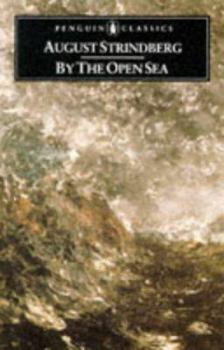By the Open Sea
Select Format
Select Condition 
Book Overview
This work has been selected by scholars as being culturally important, and is part of the knowledge base of civilization as we know it.This work is in the "public domain in the United States of... This description may be from another edition of this product.
Format:Paperback
Language:English
ISBN:0140444882
ISBN13:9780140444889
Release Date:June 1987
Publisher:Penguin Group
Length:192 Pages
Weight:0.38 lbs.
Dimensions:0.5" x 5.0" x 7.7"
Customer Reviews
1 rating
Underappreciated Masterpiece
Published by Thriftbooks.com User , 15 years ago
As someone with an interest in Nietzsche and European literature, the concept of a "Nietzschean novel" intrigued me. The title itself might be (though I do not know for sure) a reference to an aphorism of Nietzsche's from "The Gay Science," or it might simply reflect Strindberg's fondness for the water. For a year or so I had been meaning to find a copy of this and read it, and about a day ago I finally did. "By the Open Sea" is in places a very beautifully written, if sometimes sluggish, work. There is a scene in particular towards the end where Axel Borg, the protagonist of the novel, mocks the simplicity of poets who describe the noise of the sea as a "roar" and then proceeds to give a detailed account of the "symphony" of sounds that make up this "roar" in a unique way. In a sense Axel Borg is much like many modern scientists who say that understanding all the most minute facts of a thing doesn't take away its mystery but in fact makes it more beautiful for its intricacy and depth. The dialogue is also engaging. While not Shakespearean, and nowhere near as poetic as Strindberg's narrative prose (which some might think is overwritten, but which I rather like), it is everything you would expect from someone who gained most of his fame as a dramatist. Most of the book is narrative prose, but it picks up speed as it goes on. "By the Open Sea" focuses heavily on the single character of Axel Borg and his over-sensitive nerves. Supposedly Kafka had a particular fondness for this work, and it's easy to see why. The modern consciousness is full of wounded, conflicted, and highly sensitive figures in literature. Axel Borg is similar to Kafka in his susceptibility to outside stimuli being overwhelming. At numerous points in the book he withdraws into solitude as an antidote to the uncleanness of associating with inferior people. In the first thirty or so pages of the book we are treated to Borg's recollections of his youth and we are given a rough sketch of his character. It essentially reads like a very compressed version of Nietzsche's philosophical conceptions of the "higher type" of humanity, allowing for some differences. Borg is a genius, intellectually versatile, unbound by the desires of the mass of humanity, aristocratic in temperament, is in control of himself (he doesn't react on instinct, doesn't pander to petty or popular prejudices), and enjoys working to create and to learn. He is described as of almost deliberately strong character, and he is also a complete misogynist. Throughout the book we are repeatedly confronted with his frustrations and defeats by these lesser people. Ultimately Borg, not an eminently likable character to most people in the first place, is driven to despair and madness. For all the condensed characterization in the beginning of the novel about Axel Borg's superiority, which in many respects must be granted, we end up reading about a man whose series of problems and failures slowly gnaws away at him until he rea




